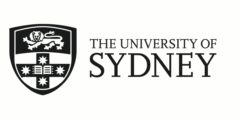In the first week of February The Faculty of Arts and Social Sciences and the Faculty of Science will kick off the inaugural 3 week intensive Indian field school: Political Economy of Development and Environment in India (GEOS 3055).
The University of Sydney operates this field school in collaboration with two prestigious Indian universities, Tata Institute of Social Sciences and the Institute for Social and Economic Change. It is an intensive, integrated three-week program of classes and field visits to address the political economy of development and environmental management in India.
Fifteen students majoring in Political Economy or Geogrpahy are participating. They will be introduced to Indian scholars and civil society groups working on issues of geopolitical, economic and environmental importance, and contextualise these issues in the rich tradition of social science that has arisen in India during the past century.
Students will gain unique insights into the vast challenges faced by one of the most important nations in the 21st century global economy, and gain research and analytical skills through observation and analysis of India’s development and environmental complexity.
THE PROGRAM
Week one
Held in Mumbai, we will stay at the Tata Institute of Social Sciences campus and participate in tailored classes and city tours developed by local academic staff in collaboration with University of Sydney convenors. Students will take classes in the history of India’s development experience and the political, economic, class, caste, religious and cultural underpinnings of resource distribution and patterns of inequality.
Week two
We will travel by train to the remote rural community of Tuljapur and stay at the Tata Institute’s campus where we will see rural India firsthand. Day trips to local villages and discussions with local farmers and government authorities complement classes examining economic and social change in rural India.
Week three
We will first focus on the environment and sustainability as we travel to the Western Ghats, an extensive mountainous area in southwest India recognised by the United Nations Educational, Scientific and Cultural Organization as a World Heritage site because of its unique biosphere. We will learn from local environmental researchers about the challenges of maintaining the region’s biological diversity while accommodating the pressures of agriculture and tourism. The field school concludes in the booming city of Bangalore where we will have classes on urban growth and transformation and the effects of globalisation; we will also visit the technology parks that makes this city a vital cog in the global economy.
Skip to content

